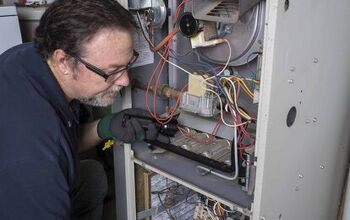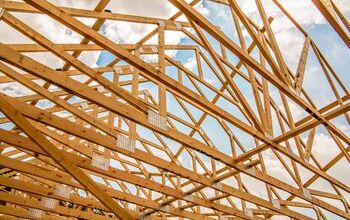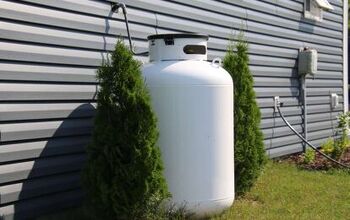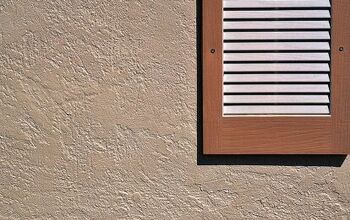Why Is My Concrete Driveway Lifting? (Find Out Now!)

When you install a driveway, it’s normal to expect it to sink a bit. This is especially true if you live in a swampy area or if you’re in a fairly new development. Lifting, on the other hand, would throw most of us for a loop. If you’re like many other homeowners, you probably are wondering what would make a concrete driveway lift up.
Errant roots growing underneath the driveway are the typical reason for a lifting concrete driveway. However, poor soil quality and regular erosion can also cause a concrete driveway to start lifting. While repairs can help, it sometimes can be too much to bear without replacement.
Concrete driveways can lift regardless of where you live. It’s important to make sure that you know how to prevent it and when to worry. Thankfully, we’ve got the full details on this.
Do You Need Concrete, Brick, or Stone Pros?
Get free, zero-commitment quotes from pro contractors near you.

Why Is My Driveway Lifting Up From The Ground?
Lifted bodies on a truck can be cool, but lifted driveways? Not so much. They can actually damage your car and tires. Let’s talk about the most common reasons why this can happen:
- There could be tree roots burrowing underneath the driveway. Do you have a tree near your home? Maybe near your driveway? Be careful with the roots of those trees! Tree roots are strong enough to push the concrete upward over the course of several months. Unfortunately, the damage is already done
- You may also have bad quality soil. Some soil is better for laying pavement than others. If you have soil that swells with water exposure, then you’re going to start noticing subtle post-storm lifting that subsides as the soil dries out. Over time, this can damage your concrete driveway.
- Or worse, your driveway may not have been poured correctly. If you’re quite unlucky, then your professional team may have forgotten to properly mix the filler soil. This is the soil that rests underneath your driveway. If it’s badly mixed, then it could occasionally start to rise as a result of shifting.
- Finally, there’s also the chance that you could have experienced a seismic shift. This is highly unlikely, but it’s still possible. If you had a major earthquake that cracked roads and homes, your driveway could have been lifted up.
Is This A Serious Problem?
It can be, depending on how bad it gets. In most cases, it just means that your driveway will be lumpy or that your driveway will be on an angle. However, it can lead to breaks in the driveway that could potentially harm your car or cause bicycle riders to stumble.
Generally speaking, it’s best to fix and level your driveway if you start to notice extreme lifting or breaks in your concrete. This shouldn’t happen in most cases, though.
Will Homeowner’s Insurance Cover Driveway Repairs?
In most cases, homeowner’s insurance will not cover driveway repairs. However, there are some cases where it may still be worth a shot. If your driveway was damaged by an earthquake or if it ended up cracking as a result of extreme flooding, then you might have a valid claim.
A general rule of thumb to follow is that they won’t pay out claims that are a result of wear and tear. They also don’t pay for problems caused by poor installation. Your job as a homeowner is to make sure that your home is built right and that you’ve maintained it well, after all.
What Can You Do To Prevent Concrete Driveways From Rising?
A little bit of rising can happen to any concrete driveway, even if you maintain it meticulously. However, what you do can make the difference between calling a repairman and dealing with a very minor incline. These tips below will help you keep your driveways pristine.
- Make sure that you hire someone who is careful when you get your driveway made. It takes a lot of careful prep work to make a driveway that stays steady for years. Read reviews of peoples’ work to ensure that it’s good to go.
- If you can, try to avoid excess stress on your driveway. For example, renting a dumpster and filling it with 40,000 pounds may make most driveways crack and lift up slabs. Sticking to “car level” weights is a good idea here.
- Get good filler soil that is resistant to water. Filler soil needs to be mixed well. Choose a foundation that will stay strong for several years and remain resistant to water. A good driveway company will help you pick one out.
- Remove any trees near your driveway. Or, better yet, avoid putting your driveway near the trees. Tree roots are going to be one of the worst threats to the well-being of your driveway, so it’s best to be preemptive when it comes to your home’s tree removal.
- On a similar note, make sure to put your driveway on an area that doesn’t have old roots. You would be surprised at how many people ignore this issue until it’s too late. Roots can make things uneven, even when they are no longer alive! Remove the roots that are there before you lay down those slabs!
- Address any rises as they come. If you notice that your slabs are starting to rise, it’s best to treat the rising as it comes. Early repairs will often make major repairs unnecessary down the line. If you notice cracks, it’s good to work on them too. It can help prevent water from entering your driveway foundation.
How Much Does It Cost To Level A Rising Concrete Driveway?
Most of the time, concrete driveway professionals will charge homeowners based on the typical price for installing a driveway. The price to level a rising concrete driveway can be anywhere from 10 to 50 percent of the price of the overall driveway.
Overall, you should expect a standard sized driveway to cost anywhere from $800 to $2,500 to level and tamper. This makes it one of the more expensive procedures that you may need to do to your driveway. Depending on the issue, you may also have to pay fees as high as $300 to $400 for additional work.
Can You DIY Your Own Driveway Leveling?
We do not suggest trying to raise a driveway on your own, especially if you are not used to working with concrete. In most cases, leveling your own driveway will not yield good results. It’s definitely a skill you need to practice to do well, and most tutorials will not cover everything that you need to know to do it well.
Moreover, you need to take a look at the less obvious issues that you might run into. Many homeowners insurance companies won’t cover repairs for driveways that were installed by amateurs. (Yours might, so if you still want to try this, check with them first.) If something happens to the driveway, you might get a denied claim.
Will City Officials Allow Me To Level My Own Driveway?
Believe it or not, some cities are starting to ban DIY driveway repair that goes beyond occasional patching. This is particularly true when it comes to pouring concrete in your driveway. It’s easy to see why, too. In some cases, digging too deep in your driveway area can cause you to hit a gas line. This could have explosive results.
Before you try to do your own driveway leveling, call up your local municipal board to find out what building codes and guidelines are there. If you are barred from doing your own building work, then you have no other choice than to hire a pro. (I mean, you don’t want to have to deal with fines and building write-ups, do you?)
Do You Need Concrete, Brick, or Stone Pros?
Get free, zero-commitment quotes from pro contractors near you.

Related Questions
Should you get a warranty on your driveway work?
Not all companies will offer a warranty on the driveway paving and repair work that they do, but some will. If you have the option, its worth considering. Warranties can help you save additional money on repairs that may not hold up to the test of time. Though they come at a small fee, they act as additional insurance on your driveway. If you have extra money, it’s worth it. Otherwise, it’s not.
How often should you expect to repave your driveway?
A paved driveway can last anywhere from 15 to 30 years depending on how well you maintain it and the environment that the driveway is in. To get the maximum number of years out of your driveway, you should make a point of resealing it every two to five years. This helps ensure that cracks don’t occur and that water damage is kept to a minimum.
Do concrete driveways need to be sealed?
Though most people tend to associate sealing a driveway with asphalt driveways, but that’s not always the case. Sealing your concrete driveway is a must, too. It helps lock out water and reduce the chance of ice-related damage. To maximize the lifespan of your concrete driveway, you can seal it every three to five years.

Ossiana Tepfenhart is an expert writer, focusing on interior design and general home tips. Writing is her life, and it's what she does best. Her interests include art and real estate investments.
More by Ossiana Tepfenhart




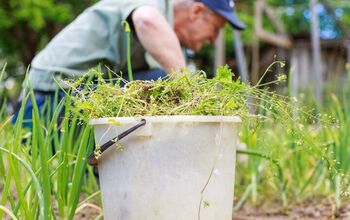





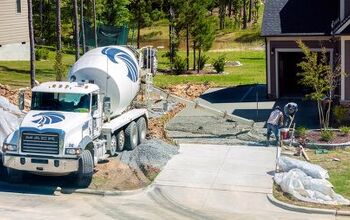

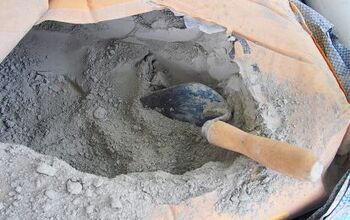
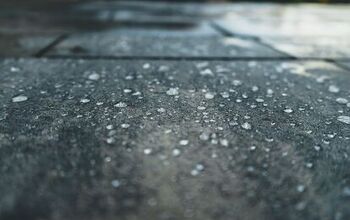
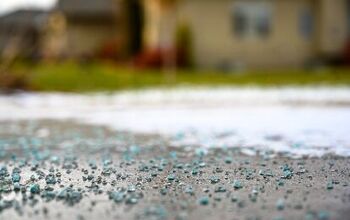

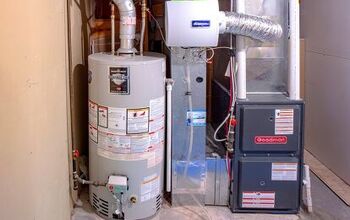
![10 Most Dangerous Neighborhoods in Baltimore [Updated]](https://cdn-fastly.upgradedhome.com/media/2023/07/31/9075655/10-most-dangerous-neighborhoods-in-baltimore-updated.jpg?size=350x220)
